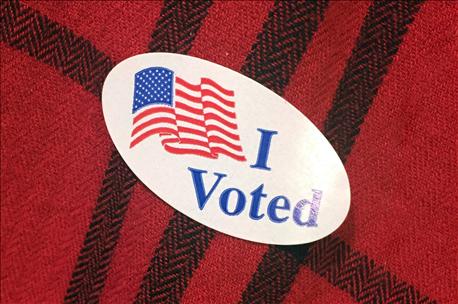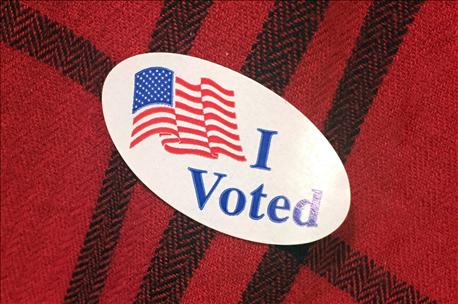
Last week, just before the election, my German friend and colleague Christian Muhlhausen messaged me on Facebook. I met Christian several years ago when we were both attending the International Federation of Ag Journalists Congress in Sweden. I was there for the Young Ag Journalists Boot Camp, which he’d gone through the year before. He’s an excellent photographer and puts out a beautiful magazine, Land & Forest. We’ve kept up ever since, thanks to social media, and chat occasionally about global agricultural issues.

VOTE: Agreeing to write 200 words on the U.S. presidential election’s impact on agriculture was a lot easier on Monday than on Wednesday.
Still, I was surprised when he asked if I would write a reflection on the U.S. presidential election and what the outcome would mean to agriculture — in 200 words or less. It seemed easy enough on Monday — less so by Wednesday. Still, I gave it a shot.
I have a lot more I’d like to add, particularly about the rural-urban divide that absolutely and completely revealed itself last Tuesday. And how the Founding Fathers clearly saw it coming, writ in their handiwork of the Electoral College. Here’s a look at what I reported; let me know if you agree!
From an agricultural perspective, I believe we can draw a few conclusions from the U.S. presidential election. First, the results surprised virtually everyone. Second, Donald Trump had far more support than anyone realized. And third, Americans are divided by rural vs. urban; rural America made its discontent known in this election (plus, the Electoral College worked).
Here in the heart of the rural Midwest, farmers and small-business owners are profoundly disappointed with Obama administration policies, including EPA overreach (trying to regulate the tiniest body of standing water) and the Affordable Care Act (paid for by the middle class; one farmer’s annual premiums went from $4,500 per year in 2011 to $20,000 per year in 2017). In their minds, Hillary Clinton promised more of those policies. Journalists experienced less access throughout the Obama administration; our American Agricultural Editors’ Association even sent a letter to the president, protesting lack of access to key federal officials.
Certainly, there is concern about Trump’s inflammatory rhetoric, and about his ideas regarding trade. Agriculture wants to be a good global neighbor. Neither Trump nor Clinton favor the Trans-Pacific Partnership, which agriculture strongly supports. We gained insight into Trump's agricultural policies this fall, but expect more details.
There’s also a sense among the rural farm community that the general media is mischaracterizing it, calling people uneducated, poorly read, desperate and intolerant. That’s certainly not true. The farm community loves its neighbors, wants sensible immigration reform, desires racial and gender equality, and is very educated.
We are hopeful and waiting to see what’s next.
Holly Spangler,
Prairie Farmer/Penton Agriculture
Illinois, USA
About the Author(s)
You May Also Like






